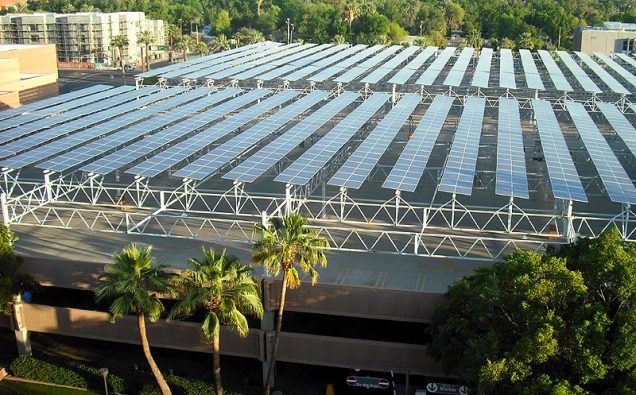
Despite recent foreign investments in a variety of energy projects including alternative sources, Pakistan continues to struggle to overcome its frequent power outages. While large scale projects may ease some of the long-running problems, experts have long argued that in the long run the country needs to diversify power production through new research and innovation.
This week, Arizona State University said a batch of 27 Pakistani engineering students has completed their entrepreneurship course at Arizona State University, pursuing innovative solutions and projects.
The project is another example of how US-Pakistan cooperation can help the South Asian country toward innovation in the critical energy sector, which has not been able to meet rapidly growing industrial and domestic requirements.
The engineering scholars attended entrepreneurship study under the U.S.-Pakistan Centers for Advanced Studies in Energy – a U.S. Agency for International Development project focused on applied research relevant to Pakistan’s energy needs.
The ASU posted some highlights of the course accomplishments on its website. The University is leading the U.S.-Pakistan Centers for Advanced Studies in Energy in a collaboration sponsored by the U.S. Agency for International Development and Pakistan’s Higher Education Commission. The University says an $18 million USAID grant supports the project with ASU as the hub for the energy component of the project in partnership with the National University of Science and Technology – Islamabad and the University of Engineering and Technology in Peshawar and Oregon State University.
“The intention of the program is to improve availability of clean, reliable power in Pakistan. Strategic innovation and entrepreneurship provides a pathway for widespread implementation of their innovative technical solutions,” ASU entrepreneurship professor Kenneth Mulligan, said.
“Pakistan is subject to rolling blackouts that impede stability, progress and business. The problems faced in Pakistan are not easy problems, which is why coming up with solutions that reside outside the box are so critical,” said Mulligan, who has taught and mentored two groups of Pakistani scholars.
Mulligan thinks all of the scholars’ final projects have market potential. Six of the scholars were women. The scholars came up with a number of interesting projects. For example, a project by Nafeesa Irshad involved developing a solar-powered drinking water purification system, which addresses both Pakistan’s need for renewable energy and clean water.
“In Pakistan, the unsafe drinking water is the main cause of children’s deaths and other health issues,” Irshad said.
“This system would be reliable to provide safe water to the people through its high temperature and UV C action,” Irshad said, according to the ASU post.
Noaman Khan, another enterprising student in the class has the idea to pursue low-cost catalysts for proton exchange membrane (PEM) fuel cells, the ASU said. Khan wants to find new materials that can possibly replace platinum as a catalyst because the material is so cost-prohibitive.
Khan said of the program that it, “is not about publishing research papers but [about] solving Pakistan’s energy problem. It requires science and entrepreneurship to go side by side. I didn’t realize it before this course. We should make discoveries that can create value.”
According to ASU, Mulligan says, “Entrepreneurship gets them to think about implementation and commercial feasibility. It’s a way to connect their engineering skillset with an entrepreneurial mindset. Who has the problem? What is their true pain point? What solution solves both the technical feasibility and commercial feasibility? The benefits are enormous. It equips them to think in terms of real impact on their communities back in Pakistan.”
Higher education opportunities like entrepreneurship studies at Arizona State University are good news for Pakistani scholars and scientists. Nevertheless, the task on ground begins with the implementation stage.
Both the government in Islamabad and the burgeoning private sector in Pakistan must help realize and commercialize innovative solutions to the country’s energy shortages, as well as encourage entrepreneurial spirit.
FEATURED IMAGE on the top shows solar panel array on the roof deck of ASU’s parking structure on Apache Blvd. in Tempe, AZ.
Photo CreditL Aznaturalist (Own work) [CC BY-SA 3.0 (http://creativecommons.org/licenses/by-sa/3.0)], via Wikimedia Commons


















